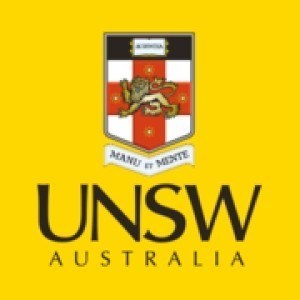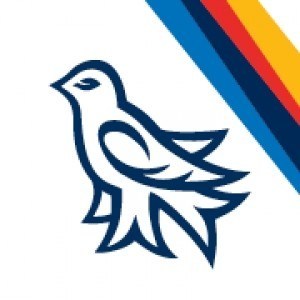The Bachelor’s program in Linguistics and Cultural Studies at Nagoya University offers students a comprehensive and interdisciplinary education designed to deepen their understanding of human language, communication, and cultural diversity. This program aims to equip students with both theoretical knowledge and practical skills necessary to analyze linguistic phenomena, explore cultural dynamics, and appreciate the complexities of human interaction across different societies. The curriculum encompasses a wide range of courses that cover various aspects of linguistics, including phonetics, syntax, semantics, and language acquisition, alongside studies in cultural anthropology, sociology, and intercultural communication. Emphasizing a global perspective, the program encourages students to engage in comparative analyses of languages and cultures, fostering critical thinking and cross-cultural awareness. Students have opportunities to participate in research projects, language laboratories, and fieldwork, which enhance their analytical capabilities and practical proficiency. The program also emphasizes language proficiency in several languages, often including English, Japanese, and other foreign languages, to promote effective communication skills in an international context. Through seminars, workshops, and collaborative research, students develop the ability to critically assess linguistic and cultural issues, prepare them for careers in academia, international organizations, media, translation, and cultural consultancy. Dedicated faculty members with expertise in various disciplines provide mentorship and guidance, supporting students’ academic growth and professional development. The Linguistics and Cultural Studies program at Nagoya University prides itself on its international environment, promoting cross-cultural exchange and fostering a deeper appreciation for linguistic diversity and cultural heritage worldwide. Graduates emerge from the program ready to contribute thoughtfully to multilingual and multicultural environments, leveraging their comprehensive understanding of language and culture to address global challenges and promote intercultural understanding.
Focusing on these diverse interrelationships, this program provides students with a transhistorical and multidimensional understanding of Japanese and other cultures through comparative studies underpinned by a sound knowledge of cultural analysis methodologies and a thorough grounding in fundamental research skills.
The courses comprising this program together offer students a wide-ranging and interdisciplinary introduction to various aspects of Japanese culture including literature, philosophy, the visual arts, film, media, subculture and sexuality – all considered from a truly comparative perspective. Students taking the program also have the chance to learn Japanese and to engage in linguistic studies of various aspects of the Japanese language.
Reflecting the importance of English as a global language all the courses in this program are be conducted in English and applicants are required to demonstrate a high level of English ability. However, participants have access to a comprehensive range of university-wide academic English support services to enable them to get the most out of the program while within the program itself dedicated courses in academic writing are offered.
- TOEFL: minimum score of 80 iBT; 550 PBT
- IELTS: minimum band score of 6
- Application fee: JPY 5,000
- Payment of the registration fee (JPY 282,000)
- Application Form
- Bachelor's Degree Diploma (or Prospective Bachelor's Degree Diploma) from Your University (Original Copy)
- Academic Transcript for Undergraduate Education (Original Copy)
- Certified Score Report of the GRE
- Research Proposal
- Two Letters of Reference (Original Copies)
- Summary of Undergraduate Graduation Research
- Major Publications
- Documents Showing Other Strengths
- Document Validating Your Nationality and Residence Status
- Japanese Government (Ministry of Education, Culture, Sports, Science and Technology) Scholarship Application Form
Scholarships
- Japanese Government (Ministry of Education, Culture, Sports, Science and Technology) Scholarship
The Bachelor's degree program in Linguistics and Cultural Studies at Nagoya University offers students an interdisciplinary education that combines the scientific study of language with an exploration of diverse cultures. The program aims to foster a deep understanding of how languages function, evolve, and influence social interactions across different societies. Students are introduced to various linguistic theories, phonetics, syntax, semantics, and pragmatics, enabling them to analyze language structures and use this knowledge to understand communication processes.
In addition to core linguistic courses, students explore cultural dynamics, societal norms, history, and arts from both Japanese and international perspectives. The curriculum encourages students to critically examine cultural differences and similarities, enhancing their intercultural communication skills. Practical language skills are emphasized, with opportunities for students to engage in language research, fieldwork, and cross-cultural projects.
The program promotes a global outlook by offering seminars, workshops, and exchanges with partner institutions worldwide. Students are encouraged to participate in internships and research projects that provide real-world experience in linguistic and cultural analysis. The program prepares graduates for various careers, including language education, translation and interpretation, international relations, cultural management, and further academic research.
Nagoya University provides a supportive academic environment with experienced faculty members dedicated to student development. Modern facilities, libraries, and research centers facilitate a comprehensive learning experience. The program also emphasizes critical thinking, analytical skills, and intercultural competence, which are essential in today’s interconnected world. Graduates of the program are equipped with the knowledge and skills to contribute meaningfully to linguistic and cultural understanding within diverse professional settings.







